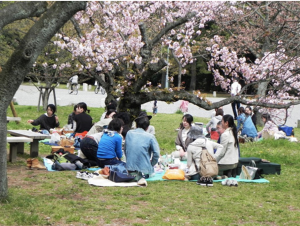How to get a dependent visa to bring your family to Japan

Of course, we all want to live together with our family. But when you first come to Japan, it can be hard to understand how to do that. If you have one of the Residence Status listed below, you will be able to apply for a Dependent Visa for your spouse and children.
First, let’s get clear on who you can bring to Japan on a dependent visa.
1. Your (legally married) spouse
2. Your (legal) children
WHO CANNOT BE YOUR DEPENDENT
You cannot apply for a Dependent Visa for a parent or other relative, regardless of whether or not they depend on you for income.
You cannot apply for a Dependent Visa for a fiance. You cannot apply for a Dependent Visa for your spouse’s children from previous marriages if you have not legally adopted them as your own.
STATUSES ELIGIBLE TO APPLY FOR DEPENDENT VISAS
Almost all international residents in Japan are eligible to bring their family to Japan as Dependents. As long as your Residence Status is in the list below, you’ll be able to apply.
• 教授 Professor
• 芸術 Artist
• 宗教 Religious Activities
• 報通 Journalist
• 高度専門職 Highly Skilled Professional
• 投資・経営 Investor/Business Manager
• 法律・会計業務 Legal/Accounting Services
• 医療 Medical Services
• 研究 Researcher
• 教育 Instructor
• 技術・人文知識・国際業務
Engineer/Specialist in Humanities/International Services
• 企業内転勤 Intra-company Transferee
• 介護 Nursing Care
• 興行 Entertainer
• 技能 Skilled Labor
• 文化活動 Cultural Activities
• 留学 Student*
ADDITIONAL CRITERIA FOR STUDENT RESIDENCE STATUS HOLDERS
If you are living in Japan on a Student status, then the type of school you are attending determines whether or not you can apply for a dependent visa for your family.
You’ll see that there are several options for Japanese language, so if you are in Japan studying Japanese, you may wonder which applies to you. The simple answer is to look at your institution. If the institution is a university or junior college (i.e. if it also grants associates degrees or higher in other fields), then you would be eligible to apply for a Dependent Visa. If you are studying Japanese at an advanced vocational school or at a dedicated Japanese language school, you would not be eligible to apply for a Dependent Visa.
OTHER RESIDENCE STATUSES
Someone who is living in Japan as a Dependent cannot have their own Dependent. There are a few other statuses, such as Trainee and Designated Activities, that are not eligible to bring family members.Other statues, such as Spouse of Japanese National, Permanent Resident, Diplomat, etc., have other methods to bring their family members to Japan and will not need the Dependent Visa process.
CAN I BRING MY FAMILY WITH ME TO JAPAN AT THE SAME TIME?
It depends on your employer.Certain types of companies in Japan have special authorization to accelerate their Certificate of Eligibility application process for foreign employees and simultaneously apply for Dependent Visas for their spouses. Those companies are able to get Certificates of Eligibility for both the employee and the dependents within about 2 weeks from application.
If you are coming to Japan as a student, researcher, or working for anything less than a large enterprise, then you will not be able to bring your dependents to Japan at the same time as you. After you arrive in Japan, you will have to apply for a Certificate of Eligibility for your dependents so they can join you Japan. That application process can take up to three months. Skip down to the instructions below.
WHAT COMPANIES CAN APPLY SIMULTANEOUSLY FOR DEPENDENT VISAS?
According to the Ministry of Justice, companies designated as Category 1 or Category 2 are eligible for the accelerated Certificate of Eligibility application process, provided that they are paying you enough to support your family members as well. Category 1 and 2 companies must be “of a certain size” and make their present operating situation clear through public documentation. Specific examples include: Category 1 • Companies listed on the Japanese stock exchange • Mutual insurance companies • National or regional public organizations (公共団体 kokyo dantai) • Independent administrative institutions (独立行政法人 dokuritsu gyosei hojin), Special public corporations (特殊法人 tokushu hojin), Specially-authorized corporations (特別認可法人 tokubetsu ninka hojin), Public organization-authorized public service organizations (公益法人 koeki hojin) • Tax-exempt public benefit corporations listed in Table 1 of the tax exempt corporations list. Category 2: Individuals or organizations that paid over 15,000,000 yen in income tax during the previous fiscal year. If you are to be employed in Japan and want to know if your company can apply simultaneously for your dependents’ certificates of eligibility, the best thing to do is ask them directly!APPLYING FOR A DEPENDENT VISA YOURSELF
If you have to bring your family to Japan yourself, you will need to start with applying for their Certificate of Eligibility. Approval can take up to three months, so get started as soon as you can after you arrive in Japan.
As usual with the Immigration Bureau, the information available in English is vague. The requirements below are translated from the Japanese webpage:
DEPENDENT CERTIFICATE OF ELIGIBILITY REQUIRED DOCUMENTS
1. Completed application form. You can download the form from the Immigration Bureau website.
2. One ID-quality photo: 30mm wide by 40mm high, showing the applicant (your dependent) from the chest up, facing forward, with no hats or background. Write the applicant’s name on the back and attach it to the application form in the designated spot
3. One self-addressed reply envelope with 392 yen in stamps attached.
4. One of the following documents to prove your relationship:
a. Family Register
b. Certificate of acceptance of registration of marriage
c. Marriage certificate
d. Birth certificate
e. Any other document that can be accepted as meeting the requirements of the previous items
Note: Any documents in a foreign language must have a Japanese translation attached.
5. Copy of the supporter’s (you) Residence Card or passport. (Submit copy of the Residence Card if you have it!)
6. Proof of employment/activity and financial resources.
6.1. If the supporter is engaged in business management or income-generating activities:
(a) 1 copy of certificate of employment or business license (must show supporter’s occupation); and
(b) Certificate of Residence Tax amount and payment showing one full year of tax payment. (Acquired from the City Hall where you resided as of Jan 1. *If you have not been in Japan long enough to acquire a Certificate of Residence Tax showing a full year of tax, consult with the Immigration Bureau. A certificate of employment with salary may be sufficient.
6.2. If supporter is not employed or earning income through operating a business: (a) A bank account balance statement in the supporter’s name or scholarship award statement showing the amount of award and period of payment. (b) Documents equivalent in nature to (a) that show proof of sufficient finances for the applicant to be able to meet their expenses while in Japan.
7. Proof of identity, in case of application by proxy.
It is acceptable to fill out the application form in English, but all documents submitted as evidence must be in Japanese or be accompanied by a translation.
FINANCIAL RESOURCES FOR YOUR DEPENDENT
As a general rule, 80,000 yen per month is considered sufficient resources for one person. Since you will be living with your dependent, you don’t need to double that for each person, but count on adding at least 40,000 for a spouse and a little less than that for each child (depending on their age).
As an example, I know of MEXT scholars who were successful in bringing a spouse and two children to Japan with a total income of 145,000 yen.
The Dependent Residence Status does not allow your spouse or children to work in Japan, so you need to plan to support them from your income. Your spouse will be eligible to apply for a work permit (called “Permission to Engage in Activities Other than that Permitted Under the Status of Residence Previously Granted”), but they will be limited to working no more than 28 hours per week. This is not going to be enough for your spouse to support him/herself.
A dependent is able to search for a full time job and use that to apply to change to a working residence status. However, finding a full-time job in Japan is quite difficult without some level of fluency in the language.
All of that will come later, once your spouse is in Japan. But it’s a good idea to have a clear understanding of your financial situation in advance.
APPLYING FOR THE JAPANESE DEPENDENT VISA
Once you have your spouse and/or child’s Certificate of Eligibility, you will need to send it to them so they can apply for their visa in your home country.
I recommend making a photocopy first and sending the Certificate by a reliable courier service. Your spouse/child will need the original Certificate of Eligibility to apply for the visa. The photocopy can help you apply for reissuance of the Certificate if it gets lost in the mail.
Visa requirements vary by country, so be sure to check the website of the Japanese Embassy in your country!
MAKING TRAVEL ARRANGEMENTS
Once you have the Certificate of Eligibility, your spouse’s dependent visa is all but guaranteed, so it’s safe to start making his or her travel arrangements to Japan.
Your spouse/child must arrive in Japan within 3 months of the date of issue on the Certificate of Eligibility (regardless of whether the visa has a later expiration date or not).
Congratulations! Your family will be together in Japan soon!
1) Inviting Family Members to Japan
1. When family stay in Japan to visit relatives for less than 3 monthsFamily members can visit Japan on a Temporary Visitor Visa if they will stay in Japan for less than 3 months. If their passport is issued by a country or region that has a Visa Exemption arrangement with Japan, they do not have to obtain a temporary visitor visa beforehand.
The Ministry of Foreign Affairs of Japan – Guide to Japanese Visas:
https://www.mofa.go.jp/j_info/visit/visa/index.html
2. When family stay in Japan for more than 3 months
If a foreign student studying in Japan under the residence status of “Student” wishes to bring family members to Japan to live with them, a visa (Dependent visa) must be acquired for each family member. Only the spouse and child(ren) of the student are eligible for the Dependent Visa.
There are two ways to acquire this visa:
One way is to go directly to an overseas Japanese embassy or consulate and apply for a visa. (It may take 2-3 months.)
The second way is to apply for a Certificate of Eligibility (Dependent) at an Immigration Bureau in Japan on behalf of the family member(s). The Certificate of Eligibility is usually issued about 1 month after the application form is submitted. Send the Certificate(s) of Eligibility to your family member(s). Each family member should bring their Certificate of Eligibility along with other necessary documents to the Japanese Embassy/Consulate in their country to apply for the “Dependent” visa.
※If you wish to invite your family to stay with you, it is advised that you do this once you have become accustomed to life in Japan and have found a place for them to live.
※If your child (or children) will attend nursery school or elementary school, etc., please research schools in the area prior to inviting your family member(s).
How to apply
Documents to be submitted:
• Application form for the Certificate of Eligibility for Dependent status (R “Dependent”)
(Form available from the Immigration Bureau)
http://www.immi-moj.go.jp/english/tetuduki/kanri/shyorui/01-format.html
• A copy of each family member’s passport
• An ID photo (4 x 3cm, taken within 3 months before application) for each family member
・Documents certifying the personal relationship between the international student and each family member, such as a copy of marriage certificate or birth certificate.
・Documents regarding the Supporter (International student)
1. A copy of the Supporter’s passport
2. A copy of Supporter’s residence card (front and back)
3. One of the Supporter’s certificates issued by Kobe University, such as the student registration certificate
※Degree-seeking students can receive these from the automatic certificate issuing machine.
Non-degree students need to ask the Academic Affairs Section of their faculty/graduate school.
※If the supporter has failed to graduate within the expected period and must remain in Japan for this reason, a statement explaining the reason for failing to meet the graduation requirements must be submitted.
4. Official documents that show the Supporter’s income or ability to support the family during their entire stay in Japan, such as a bank statement, Certificate of Scholarship etc.
・A return envelope (standard-size self-addressed, affixed with the necessary stamp (¥404) for simple registered mail, "kan-i-kakitome")
※Please attach a Japanese translation if one of the documents for submission is in another language.
※All certificates issued in Japan must be issued within three months prior to the date of application
※Additional documents may be required by the Immigration Bureau.
※In principle, all submitted materials will not be returned. Therefore, if there are any important documents that you want returned to you, please notify the official when handing in your application documents.
※The Certificate is valid for 3 months. Your family should obtain the visa and arrive in Japan within this period.
Application Procedures
Submit the above documents to the Immigration Bureau on behalf of the family.
2) Necessary Procedures after Family Members’ Arrival in Japan
(1) Notification of Place of Residence for the Family MembersWithin 14 days of moving to the new residence, the family members should visit the city/ward office and submit the moving-in notification. They should take their residence card(s) and, if they live in the same household as you, they should also take official proof of their relationship with you (marriage certificate, birth certificate, etc.). Official documents written in foreign languages should be submitted alongside a Japanese translation. An additional document with the name, address, and seal or signature of the person who translated the documents should be submitted as well. You may translate the documents. All the submitted documents should be original. In principle, all submitted materials will not be returned. Therefore, if there are any important documents that you want returned to you, please notify the official when handing in your application documents. At the same time as submitting the moving-in notification, the family member(s) should also apply for National Health Insurance, the National Pension System, and other official programs if eligible.
(2) Extension of Period of Stay for family
If student’s family member(s) wish to extend their permitted term of residence, they must apply for an extension at the Immigration Bureau (which controls their residing area) prior to the expiration date. Applications are accepted from three months prior to the expiration of the current period of stay. Please make sure to check the period of stay carefully, and allow sufficient time to apply for an extension before it expires.
The Immigration Bureau will issue a new residence card with the new expiration date.
Reference
Immigration Services Agency of Japan Website
Permission for Extending Period of Stay:
http://www.immi-moj.go.jp/english/tetuduki/zairyuu/koushin.html
Application for Extension of Period of Stay (Procedure):
http://www.immi-moj.go.jp/english/tetuduki/kanri/shyorui/03.html
Immigration Bureau Organization:
http://www.immi-moj.go.jp/english/soshiki/index.html
How to apply
Documents to be submitted:
(Resident status: Dependent)
・Application for Extension of Period of Stay ((R “Dependent”) (Form available from the
Immigration Bureau)
http://www.immi-moj.go.jp/english/tetuduki/kanri/shyorui/03.html
・An ID photo for each family member (4 x 3 cm, taken within three months prior to the date of application) (Not necessary for members under 16 years old)
・Each family member’s passport (Original)
・Each family member’s residence card (or Alien Registration Card)(Original)
・Processing fee of ¥4,000, to be paid in revenue stamps (shunyu inshi))
(Revenue stamps (shunyu inshi) are available at post offices and convenience stores.)
・Documents certifying the personal relationship between the international student and each family member, such as a copy of marriage certificate or birth certificate.
・Documents regarding the Supporter (International student)
1. Supporter’s passport copy
2. A copy of Supporter’s residence card (front and back)
3. One of the Supporter’s certificates issued by Kobe University, such as the student registration certificate
※Degree students can receive this from the automatic certificate issuing machine. Non-degree students need to ask the Academic Affairs Section of their faculty/graduate school.
※If the supporter has failed to graduate within the expected period and must remain in Japan for this reason, a statement explaining the reason for failing to meet the graduation requirements must be submitted.
4. Official documents that show the Supporter’s income or ability to support the family during their entire stay in Japan, such as a bank statement, Certificate of Scholarship etc.
※Please attach a Japanese translation if one of the documents for submission is in another language.
※All certificates issued in Japan must be issued within three months prior to the date of application.
※Additional documents may be required by the Immigration Bureau.
※In principle, all submitted materials will not be returned. Therefore, if there are any important documents that you want returned to you, please notify the official when handing in your application documents.
Application Procedures
Submit the above documents to the Immigration Bureau which controls your residing area.
(3) When a child is born in Japan
●Registration of Birth
When a child is born to two foreign nationals in Japan, please submit the registration of birth for Alien Registration within 14 days from the date of birth along with a Certificate of Birth issued by the hospital and the Maternal and child health handbook (Boshi-Techo) at the residential city/ ward office. After submission, your child’s name and date of birth will be listed in your household’s resident record.
●Application for Acquisition of Status of Residence for Newborns (Report of Birth)
If the child is going to stay in Japan for more than 60 days from their date of birth, an application for acquisition of status of residence must be made within 30 days from the date of birth at the Immigration Bureau which controls your residing area. The Immigration Bureau will issue a residence card for them.
Reference
Immigration Services Agency of Japan Website
Acquisition Status of Residence:
http://www.immi-moj.go.jp/english/tetuduki/zairyuu/syutoku.html
Application for Permission to Acquire Status of Residence:
http://www.immi-moj.go.jp/english/tetuduki/kanri/shyorui/04.html
Immigration Bureau Organization:
http://www.immi-moj.go.jp/english/soshiki/index.html
How to apply
Documents to be submitted:
・Application for Permission to Acquire Status of Residence (Form available from the
Immigration Bureau)
http://www.immi-moj.go.jp/english/tetuduki/kanri/shyorui/04.html
・Passports of both parents (Original)
・Residence Cards (or Alien Registration Cards) of both parents (Original)
・The resident record (“Juminhyo”)(Certificate of Items Stated in Resident Register
"Juminhyo-kisaijiko-shomeisho") of the family in Japan (issued by the city/ward office)
・Certificate of Birth issued by the hospital or an Acceptance Letter of Birth Certificate issued by a municipal ward office
・Maternal and child health handbook (Boshi-Techo)
・Questionnaire (available at the Immigration Bureau)
※A photo is not required for this application.
※Application is free of charge
※Additional documents may be required by the Immigration Bureau.
Application Procedures
The application should be made by either parent at the Immigration Bureau which controls the residing area.


